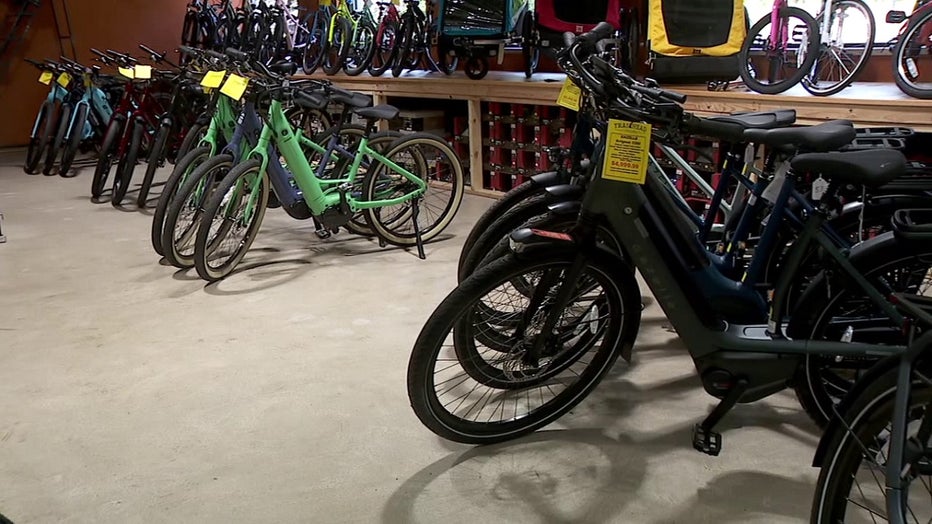Rebates aim to make e-bikes affordable, reduce pollution

Rebates aim to make e-bikes affordable in MN
One of the easiest ways for everyday people to benefit is through rebates on electric bicycles, or e-bikes. E-bikes are becoming a common sight on bike paths, but because of the cost they’re not as common in low-income neighborhoods. The new rebates aim to lower that barrier.
(FOX 9) - Minnesota is making a massive investment in fighting climate change based on budgets passed in the latest legislative session. One of the easiest ways for everyday people to benefit is through rebates on electric bicycles, or e-bikes.
E-bikes are becoming a common sight on bike paths, but because of the cost they’re not as common in low-income neighborhoods.
The new rebates aim to lower that barrier. E-bikes are big business in the cycling world.
"Every year our growth has been fantastic and now it’s just exponential," said Pam Sayker, co-owner of Trailhead Cycling.
She says at they still sell more regular, "acoustic" bikes, but the electric two-wheelers are catching up.
The one spike in the spokes is the cost. Their e-bikes run between $1600 and $5000.

"It makes it more difficult to get into the things like e-bicycle commuting for folks," said Gov. Tim Walz.
He turned back into a teacher at a press conference Wednesday, telling South St. Paul elementary schoolers how the state can help.
"I’m excited about this," he said. "In state government, we sometimes do some rebates."
Minnesota will start giving rebates of up to 75% of the cost of e-bikes to a maximum of $1500. Families in higher income brackets get smaller rebates up to $1000 or half the cost. The state’s own incentive is huge.
E-bike research shows that by the mile, they create 1/70 the climate emissions of gas-fueled cars.
EPA studies reveal Minnesota could cut 826 metric tons of carbon dioxide every day if just 8% of people commuting five miles or less used e-bikes instead of cars.
That’s the equivalent of 900 transatlantic flights. And it costs less than a penny per mile to charge an e-bike. So a sustained surge in e-bikes could have a dramatic impact on quality of life.
"A) it cuts down on our pollution," Sayler said. "B) it cuts down on our congestion. And C) it helps us live healthier lives."
The state has budgeted $2 million a year for the rebates in 2024 and 2025.
So they don’t start until next year and they’re first come first served.

